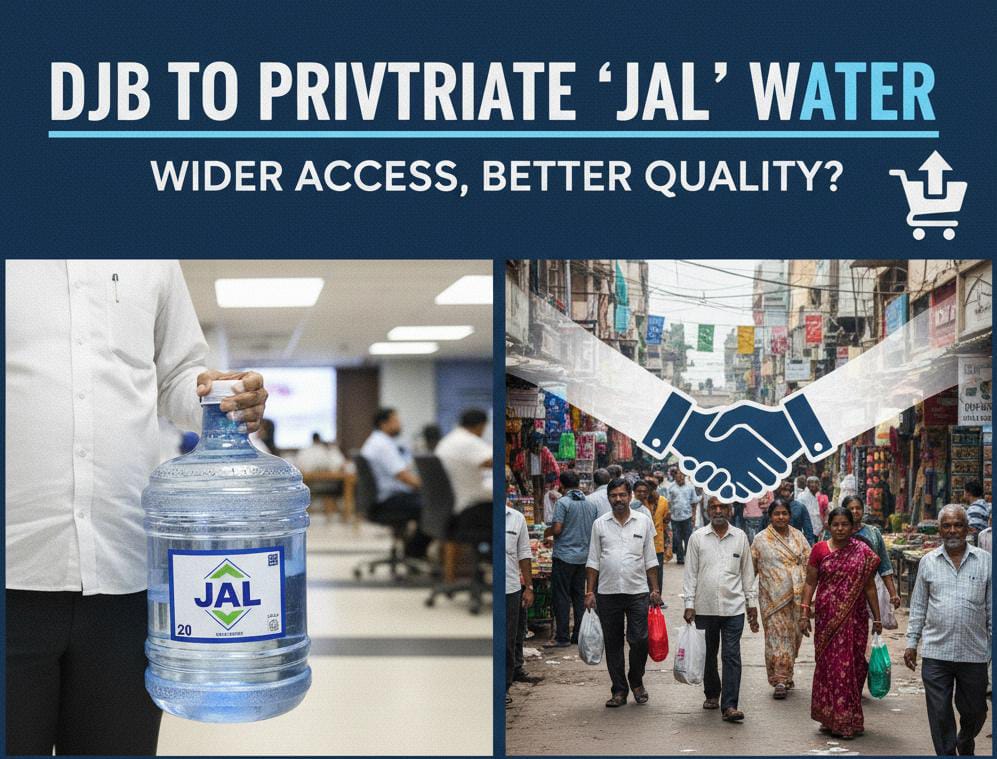
The Delhi Jal Board DJB is considering a major shift in how it manages its packaged drinking water service, sold under the brand name "JAL." Senior government officials have confirmed that the utility is looking to hire a private third party. The primary goals of this potential move are to expand the service's distribution network and make the water available at more economical rates for consumers.
Water Minister Parvesh Verma indicated that a private partner might be brought in on a revenue sharing basis. He emphasized the benefits of this strategy, stating, "By involving a third party, availability and service quality can improve. We will formulate the policy, and the DJB can help run it efficiently and transparently." This suggests a model where the DJB retains oversight while leveraging private sector efficiency for operations and logistics.
Currently, the DJB's "JAL" packaged drinking water is sold in two main variants: 20-liter jars and cartons containing 24 smaller 250ml packs. The bottling plant responsible for this production is located in Greater Kailash-I, near Sadiq Nagar. It operates in three shifts and produces a substantial 3.5 lakh liters of water daily. This water undergoes a stringent purification process, including purification, activated carbon treatment, and microfiltration to ensure high quality. The product is certified by the Bureau of Indian Standards BIS, indicating it meets national quality benchmarks.
Despite the high standards of production, the availability of "JAL" water is currently limited. Consumers can purchase the bottled water only from 12 designated Suvidha Kendras, which are located in areas such as Sadiq Nagar, Lajpat Nagar, Sarita Vihar, Varunalaya, Khanpur, and Mandwali, among others. Alternatively, people can approach the GK-1 project director for bulk orders.
Furthermore, the DJB's sales are currently restricted mostly to government departments, offices, and select societies. Officials noted that while they do provide options to the government sector, sales to the general public remain mostly confined to these official avenues or limited government events.
A previous administration had attempted to expand the product line in 2019 by proposing to introduce more consumer friendly water bottles, specifically 500ml and 1-liter bottles. However, that project did not materialize, indicating that expanding and modernizing the service has been a long-standing challenge.
A DJB official highlighted the competitive landscape. While government offices and events primarily use JAL water, the commercial market for bottled water is overwhelmingly dominated by private companies selling 20-liter jars. The official pointed out a significant issue, saying, "People purchase drinking water from local vendors and shops where the quality of the water is unknown." The official believes that if the DJB can significantly increase its sales, it will not only boost its revenue but also provide the public with access to consistently clean drinking water.
Data from a socio-economic survey of Delhi supports the need for clean, reliable water options. The survey indicated that approximately 7.7% of households in Delhi use packaged drinking water, suggesting a notable market segment that values this product.
The proposal to privatize the distribution of "JAL" water is therefore seen as a strategic move. It aims to make the DJB's quality product widely available to the common public, challenge the dominance of unregulated private sellers, and generate revenue by leveraging the private sector's logistical capabilities. The move promises better availability and potentially lower prices for high-quality bottled water across the city.





















